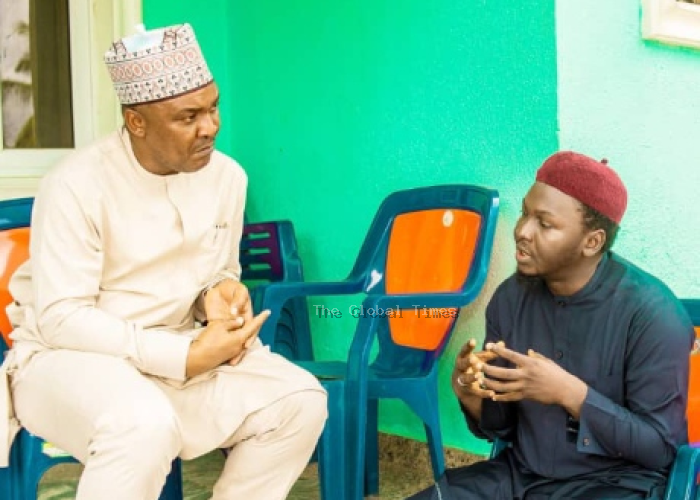
The painful reality of betrayal: Why kindness shouldn't be defined by actions?

From Salihu Abdullahi Osuko, Giza
Betrayal is a painful reality that many of us have faced at some point in our lives. It's a feeling of being let down, deceived, or abandoned by someone we trusted, supported, and cared for. Whether it's a friend, family member, or colleague, betrayal can come from those closest to us, leaving us feeling hurt, confused, and questioning our own judgment.
One of the most challenging aspects of betrayal is understanding why it happens. Sometimes, it's due to misunderstandings, miscommunications, or a lack of empathy. Other times, it's driven by jealousy, insecurity, or a sense of entitlement. Whatever the reason, betrayal can be a devastating experience that shakes our confidence, trust, and faith in others.
However, it's essential to remember that betrayal is not a reflection of our worth, character, or kindness. It's a reflection of the other person's actions, values, and priorities. When someone betrays us, it's not because we're flawed or inadequate; it's because they've chosen to prioritize their own interests, desires, or fears over our well-being and trust.
In real-life scenarios, we see betrayal play out in various relationships. Friends may turn against us due to jealousy, competition, or a sense of superiority. Family members may betray our trust due to their own struggles, insecurities, or expectations. Colleagues may stab us in the back due to office politics, rivalry, or a desire for advancement. Whatever the context, betrayal can be a painful and disorienting experience.
Despite the pain of betrayal, it's crucial to remember that not everyone will stay loyal. Some people will come and go, leaving us feeling hurt, angry, or confused. However, it's essential to maintain our integrity, empathy, and kindness, even in the face of betrayal. We mustn't let the actions of a few harden our hearts or stop us from helping others.
Instead, we should understand that kindness is a reflection of our character, not theirs. When we choose to be kind, compassionate, and empathetic, we're not doing it for others; we're doing it for ourselves. We're cultivating a sense of purpose, meaning, and fulfillment that's not dependent on external validation or approval.
Moreover, kindness has a ripple effect that can transform lives, communities, and societies. When we choose to be kind, we're creating a positive impact that can inspire others to do the same. We're building a culture of empathy, compassion, and understanding that can bridge divides, heal wounds, and foster a sense of belonging.
In the face of betrayal, it's tempting to become cynical, bitter, or resentful. However, this only perpetuates a cycle of negativity, hurt, and anger. Instead, we should strive to maintain our kindness, empathy, and compassion, even when others don't reciprocate. We should focus on our own character, values, and priorities, rather than trying to control or change others.
Ultimately, kindness
is a choice that reflects our character, values, and priorities. When we choose to be kind, we're not doing it for others; we're doing it for ourselves. We're cultivating a sense of purpose, meaning, and fulfillment that's not dependent on external validation or approval.
In conclusion, betrayal is a painful reality that can come from those closest to us. However, it's essential to remember that kindness is a reflection of our character, not theirs. We mustn't let the actions of a few harden our hearts or stop us from helping others. Instead, we should understand that not everyone will stay loyal, but our kindness reflects our character, not theirs.
As we navigate the complexities of relationships, trust, and loyalty, let's remember that kindness is a powerful tool that can transform lives, communities, and societies. Let's choose to be kind, compassionate, and empathetic, even in the face of betrayal. Let's focus on our own character, values, and priorities, rather than trying to control or change others.
In the end, kindness is a reflection of our humanity, our values, and our priorities. It's a choice that we make every day, in every interaction, and in every relationship. Let's choose to be kind, not because others deserve it, but because it reflects our character, values, and priorities.
As we move forward, let's remember that betrayal is not the end of the story. It's a chapter in our lives that can teach us valuable lessons about trust, loyalty, and kindness. Let's use these experiences to grow, learn, and become better versions of ourselves.
In the face of betrayal, let's choose to be kind, compassionate, and empathetic. Let's focus on our own character, values, and priorities, rather than trying to control or change others. Let's create a ripple effect of kindness that can transform lives, communities, and societies.









